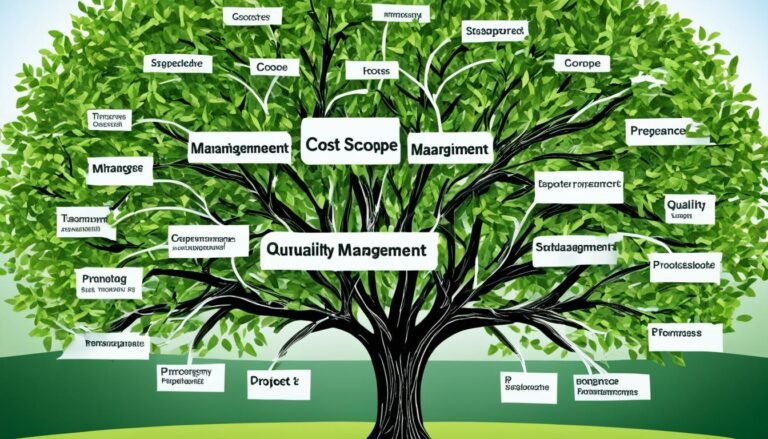What Is Quality Assurance and Why Is It Crucial for Your Projects?
Quality assurance plays a pivotal role in ensuring the success of any project. It encompasses a set of processes and activities aimed at maintaining and improving the quality of deliverables.
But what exactly is quality assurance and why is it crucial for your projects? In this discussion, we will delve into the meaning of quality assurance and its significance in project management.
Additionally, we will explore the key elements that comprise a robust quality assurance framework and the benefits it brings to your projects.
So, let's begin our exploration of this vital aspect of project management.
Key Takeaways
- Quality assurance ensures projects adhere to established standards and meet required levels of quality.
- Thorough testing and inspections mitigate potential risks and issues.
- Quality assurance contributes to the credibility and reputation of the project team and organization.
- Enhancing customer satisfaction by consistently delivering high-quality outputs.
Understanding Quality Assurance
Quality assurance is a systematic approach that ensures projects adhere to established standards and meet the required levels of quality. It involves a series of processes and activities aimed at preventing defects and ensuring that the final product or service meets the expectations of the stakeholders. The quality assurance process begins with the establishment of quality objectives and the development of a quality plan that outlines the activities, resources, and responsibilities necessary to achieve those objectives.
One key component of the quality assurance process is quality control. Quality control involves the ongoing monitoring and testing of the project deliverables to ensure they meet the required standards. This includes conducting inspections, performing tests, and reviewing documentation to identify any defects or deviations from the established requirements. By implementing effective quality control measures, project teams can identify and address issues early on, reducing the risk of rework, delays, and customer dissatisfaction.
Furthermore, quality assurance goes beyond quality control activities. It encompasses the entire project lifecycle, from the initial planning and design phases to the final implementation and evaluation. It involves activities such as quality audits, process improvements, and continuous monitoring to ensure that the project is on track and meeting the desired quality standards.
Importance of Quality Assurance in Projects
Implementing a robust quality assurance process is crucial for the success of any project. Quality assurance plays a vital role in ensuring that a project meets the desired standards and objectives. It focuses on identifying and rectifying any defects or errors in the project deliverables, thereby reducing the risk of failure and ensuring customer satisfaction.
The importance of quality assurance in projects cannot be overstated. It helps to mitigate potential risks and issues by conducting thorough testing and inspections at various stages of the project. By implementing quality assurance measures, project teams can identify and address any deviations from the project requirements early on, preventing costly rework and delays.
Quality assurance also plays a significant role in enhancing the overall project performance and efficiency. By establishing clear quality standards and processes, it promotes consistency and uniformity in project deliverables. This, in turn, improves the project's quality, reliability, and durability, leading to higher customer satisfaction and repeat business.
Moreover, quality assurance contributes to the credibility and reputation of the project team and organization. It demonstrates a commitment to delivering high-quality outcomes and meeting customer expectations. This can result in increased customer trust and confidence in the project team's ability to deliver successful projects.
Key Elements of Quality Assurance
To effectively ensure the success of a project, it is essential to establish and adhere to key elements that encompass the quality assurance process. Quality assurance involves the systematic evaluation and monitoring of project activities to ensure that they meet the specified requirements and deliver the desired outcomes. It encompasses quality control and quality management, which are integral components of the overall project management framework.
The key elements of quality assurance can be summarized in the following table:
| Key Elements of Quality Assurance |
|---|
| 1. Quality Planning |
| 2. Quality Control |
| 3. Quality Assurance |
| 4. Continuous Improvement |
Quality planning involves defining the quality objectives, establishing quality standards, and developing a comprehensive quality management plan. It sets the foundation for the entire quality assurance process.
Quality control focuses on monitoring and inspecting project deliverables to identify and address any deviations from the predetermined quality standards. It involves conducting regular inspections, tests, and reviews to ensure that the project outputs meet the required quality criteria.
Quality assurance, on the other hand, is a proactive approach that aims to prevent defects and errors by implementing robust processes, procedures, and quality management systems. It involves conducting audits, implementing corrective actions, and continuously improving the project processes and outcomes.
Continuous improvement is an essential element of quality assurance, as it involves analyzing project performance, identifying areas for improvement, and implementing necessary changes to enhance the overall quality of project deliverables.
Benefits of Implementing Quality Assurance
The incorporation of quality assurance into project management processes offers a range of significant benefits. By implementing quality assurance practices, organizations can enhance their project outcomes and ensure the delivery of high-quality products or services.
Here are four key benefits of implementing quality assurance:
- Improving Efficiency: Quality assurance helps identify and eliminate potential bottlenecks, ensuring smooth project workflows. By establishing standardized processes and procedures, organizations can streamline their operations, minimize errors, and increase productivity. This leads to better resource utilization and time management, ultimately improving project efficiency.
- Reducing Costs: Quality assurance helps identify and rectify issues early in the project lifecycle, reducing the likelihood of costly rework or failures. By detecting and addressing defects at an early stage, organizations can save on time, resources, and potential legal liabilities. Implementing quality assurance practices also helps prevent customer dissatisfaction and the associated costs of resolving customer complaints or product recalls.
- Enhancing Customer Satisfaction: Quality assurance ensures that products or services meet or exceed customer expectations. By consistently delivering high-quality outputs, organizations can build trust and loyalty with their customers. This leads to increased customer satisfaction, positive word-of-mouth referrals, and a better brand reputation in the market.
- Driving Continuous Improvement: Quality assurance fosters a culture of continuous improvement within organizations. By regularly monitoring and evaluating project performance, organizations can identify areas for enhancement and implement corrective actions. This iterative approach helps organizations learn from their mistakes, optimize processes, and continuously deliver better project outcomes.
Best Practices for Effective Quality Assurance
Effective quality assurance practices are essential for ensuring that projects meet the highest standards of quality and deliver successful outcomes. To achieve this, organizations must implement best practices that promote continuous improvement and adhere to strict quality standards.
One crucial aspect of effective quality assurance is the establishment of clear quality standards. These standards serve as the benchmark for measuring the quality of project deliverables and ensure that they meet or exceed customer expectations. By clearly defining these standards, project teams can align their efforts and work towards a common goal.
Another important best practice is the implementation of a robust quality management system. This system should include processes and procedures for identifying, documenting, and addressing quality issues throughout the project lifecycle. It should also incorporate regular quality audits to evaluate compliance with quality standards and identify areas for improvement.
Continuous improvement is a key principle in effective quality assurance. Organizations should foster a culture of learning and development, encouraging project teams to identify and implement process enhancements. By analyzing project data and feedback, organizations can identify trends, root causes of quality issues, and implement corrective actions to prevent similar issues from occurring in the future.
Furthermore, effective communication is crucial for successful quality assurance. Project teams should have open channels of communication to discuss quality-related concerns and share best practices. Regular meetings and status updates can help ensure that all team members are aware of the project's quality objectives and progress.
Conclusion
In conclusion, quality assurance plays a vital role in ensuring the success of projects.
By implementing effective quality assurance practices, businesses can identify and address any potential issues or defects early on, resulting in improved product quality and customer satisfaction.
It acts as a safety net, ensuring that projects meet the required standards and specifications.
Just as a skilled craftsman meticulously inspects each detail of their work, quality assurance ensures that every aspect of a project is carefully examined and perfected.







